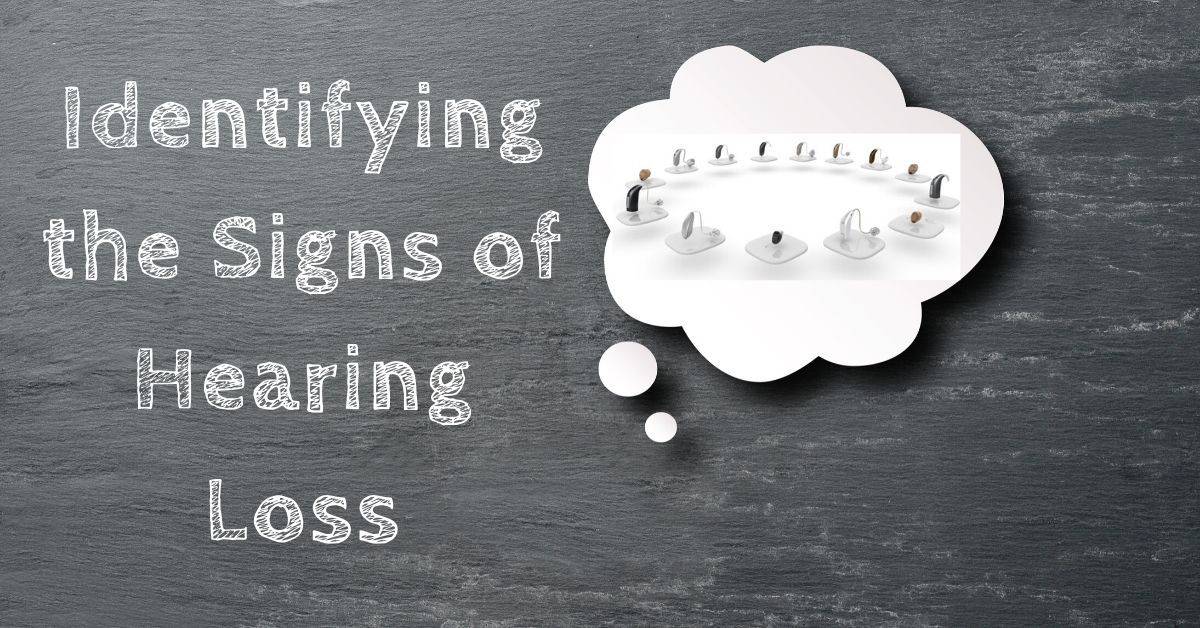
Identifying the Signs of Hearing Loss
Statistics say it takes the average person seven years to seek treatment after they begin to notice hearing loss. What’s more, only 1 out of 4 people who have hearing loss currently wear hearing aids. The Hearing Loss Association of America (HLAA) says that 48 million people in the United States suffer from hearing loss. So, 36 million Americans are going untreated.
There are a few reasons for the high rate of untreated hearing loss. Hearing loss creeps in slowly, so it is easy for it to go unnoticed until it is really a problem. And because it is easy to ignore what we never hear in the first place; we might not even realize we’re having trouble hearing long after we have lost a significant amount of hearing ability. Oftentimes it will be the people with normal hearing around us who notice the problem first.
Understanding How Hearing Loss Is Difficult to Discover
Hearing loss is more difficult to notice than vision loss. With vision, we see things in front of us that we can’t make out. With hearing loss, we might just not notice a lot of sounds, and even in conversation, because of the way our brains interpret sound, it might seem that the other person is just not speaking loudly enough. “I can hear you; I just can’t understand what you’re saying.”
Possibly the most frequent complaint from those who are newly suffering from hearing loss is that they have difficulty hearing speech in noisy environments, like restaurants, cars, or airplanes. One of the first signs of hearing loss is difficulty in discerning speech from background noise.
Background noise, especially when it contains a lot of high frequency content, can mask the consonant sounds of speech, making it difficult even for people without hearing loss to discern speech. As high frequency sounds are the first to be lost with sensorineural hearing loss, the noise and speech can be jumbled together even less intelligibly. The problem is that our brains don’t tell us that we’re missing lots of high frequency information; what we hear is what seems to be all there is.
New Difficulties in Conversation
If you’re asking people to repeat themselves over and over, especially when there is little to no background noise, you probably have hearing loss. Does it sound like everyone is mumbling? Are you having trouble keeping up in group conversations? Conversational difficulties are a very good indicator of possible hearing loss. Our brains are specially tuned to understand speech from human voices. While you might not notice that you are not hearing everything you need to make sense of speech, if you can’t ultimately make sense out of what you’re hearing, it’s likely because you’re not hearing enough of it.
Problems with Technology
Are you turning up the television or radio all the time, or are others asking you to turn it down when it sounds normal to you? Are you not hearing the phone ring or sleeping through your alarm clock? Are you missing the beep of the oven timer? If you’re failing to receive notifications from the technology around you, it’s likely you’re experiencing hearing loss.
Feeling Isolated
Hearing loss, as it increases in severity, can make us feel cut off from the world. What we may experience as simple fatigue, or feeling “tired out” by other people, could actually be the result of the extra strain required to try to participate in life with hearing loss. Do you find yourself refusing invitations more often? Are you discontinuing your involvement in activities you used to love but have a hard time participating in now? Are you pretending to understand people in order to keep a conversation moving, when really you didn’t get what they just said? Maybe you are aware that you’re making these changes because of hearing loss, or maybe you just feel that the fun has gone out of them as it becomes more difficult to engage. Either way, it is worth getting a hearing test to find out.
Fortunately, hearing loss can be treated in most cases with hearing aids that can return hearing ability to near normal. Far too many of us are going through life with the untreated effects of hearing loss. Schedule a hearing test now and don’t let hearing loss determine the course of your life.
